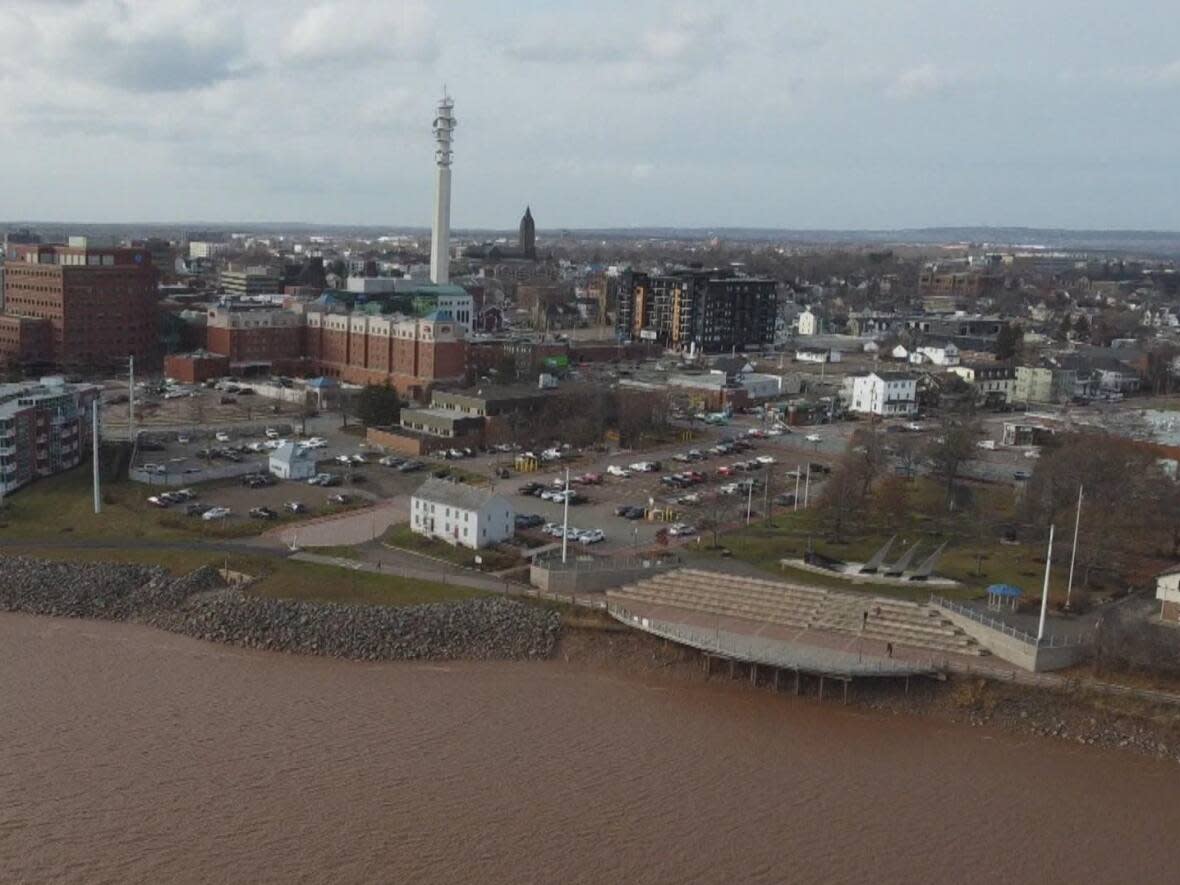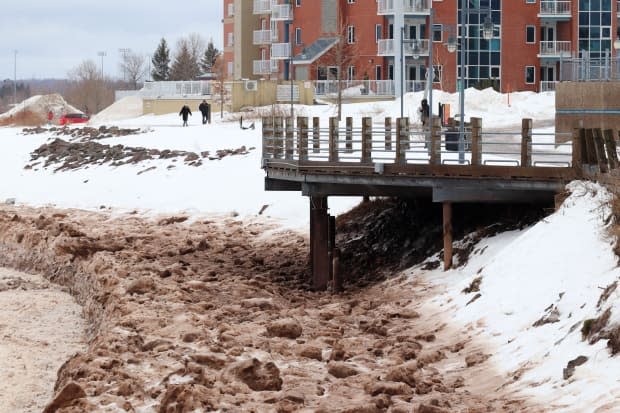Moncton to shore up Petitcodiac River bank as erosion puts trail at risk

Moncton is planning to shore up a section of the Petitcodiac River bank eroding by its riverfront trail almost a decade after telling the province not to do the work.
The 210-metre stretch along the Riverfront Trail near Bore Park was one of the few sections of riverfront where rock hasn't already been installed to slow erosion following changes to the causeway upstream.
"We've seen since the causeway gates were opened — and we knew this would happen — that the silts that were depositing for many years since the causeway was built are eroding and they're eroding quite significantly on the sides here," Dan Hicks, Moncton's director of parks, said in an interview Tuesday.
"We're finding that the erosion has gotten to the point where we need to protect our infrastructure and we need to reinforce this section of the banks."

City councillors voted unanimously this week to go ahead with the work and to ask the province to help cover the cost.
It's the final section of a 310-metre area the city asked the province not to protect with large rocks, known as riprap, in 2013 to allow the river to widen.
A 2013 agreement between the province and the city relieves the province of any responsibility in the area and leaves it under no obligation to provide financial assistance.
In 2019, councillors approved spending $350,000 to add rock along a 100-metre section. At the time, council was told doing the whole 310 metres would cost up to $1 million.
The cost of the 210-metre section is not yet known. Hicks declined to provide an estimate prior to the city issuing a tender for the work.
Asked whether the province is open to providing the requested funding, Jeremy Trevors, a spokesperson for the Department of Transportation and Infrastructure, said in an email that the province has yet to receive the request.
The city opted to allow the river to widen in 2013 in an area near Bore Park and several boardwalk outlook points. Since then, the riverbank has receded about 30 metres, Hicks said.

The trail runs roughly atop a former rail line spur.
"It's to the point now where we're starting to see it is eating into the former rail bed," Hicks said.
Railings along a section of the trail have started to lean toward the river, a sign Hicks told council of weakened support.
And it's starting to affect a support beam under a lookout point in front of Bore Park. The concrete support no longer has ground around it.
"You can stick your hand under it. It is sticking out in the air," Hicks said.
However, he said the trail has been assessed and for now is still considered safe. But he said it's a clear sign reinforcement of the banks is required.
The work is expected to start in the spring and last four to five weeks. A portion of the trail will be closed during that time.
The work may require temporarily removing portions of the wooden boardwalk.

The city sought feedback on the plan from the Petitcodiac Riverkeeper group, an organization that sought removal of the causeway to help restore the river.
"We do not oppose this project as it was presented to us," Ronald Babin, the organization's president, wrote in the email city staff read to councillors Monday evening.
"There are few solutions that can adequately address erosion while protecting infrastructure that was built in a flood plain," Babin wrote.
He encouraged using "nature-based solutions" in the future that can help address climate change.


